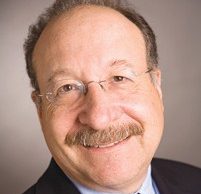
Everywhere you look this political season, candidates are talking about America’s struggling middle class.
Middle-class families are fighting hard to pay the mortgage and save for retirement. Millions still have homes that are under water. Getting enough money in the door to send kids to college and replace aging cars is tough.
But what about the other middle class? The middle class of companies whose market cap is roughly between $200 million and $2 billion. These are the companies that also provide the heartbeat of America’s free-enterprise system.
Well, it turns out that there’s trouble here, too. Up and down the Highway 101 corridor, this fall is turning out to be a tough time for some of the region’s biggest names in fashion, fast food and financial services.
We begin with Deckers Outdoor Corp., the Goleta-based owner of Ugg, Teva and Sanuk. Footwear remained a hot item right through the recession and Ugg grew to an iconic, billion-dollar brand in women’s apparel during the big downturn.
But the sluggish rebound in the U.S. economy finds consumers in a thrifty mood and the full-price points that Ugg used to command apparently aren’t there. So the company’s shares fell this week to the $40 range, driving market capitalization down below $1.5 billion, as reports surfaced that Ugg products were showing up at discount retailers.
Deckers and its visionary CEO Angel Martinez have been counting on overseas sales to power up a new generation of Ugg and Sanuk buyers, but the slowdown in emerging economies could delay their ambitious growth plans. Meanwhile, management also has its hands full with masterminding a new headquarters in Goleta, a move that should eventually lead to lower costs and better communication among its dispersed business units.
Deckers management has been astute at delivering to Wall Street what Wall Street wants, so you have to believe that eventually the company will find a way to get sales on track without threatening profit margins. But the story of Deckers is a familiar one — for companies as for families, it’s really, really hard to break out of the middle class and into the upper class.
Meanwhile, down the road in Carpinteria, CKE Restaurant’s dreams of rejoining the ranks of America’s middle class of public companies have been shelved.
For now, CKE, parent of burger chains Hardees and Carl’s Jr., is tucked into the private-equity portfolio of Apollo Management, which led the move to take the company private just two years ago.
Just a month ago, CKE chief executive Andy Puzder was steering the firm toward an IPO that would have raised as much as $213 million for the fast-food operator, enabling it to pay off more than $80 million in buyout debt and begin to chart its independent course.
But the sluggish economy and looming health care costs derailed that plan, which would have put CKE’s total market capitalization somewhere in the middle of our $200 million to $2 billion range.
Like a college graduate who moves home with his or her middle-class parents and can’t quite seem to get it together to move out again, CKE is hosted at Apollo for now. CKE, too, would benefit from a faster moving U.S. economy, especially a pick up in housing.
Renewed home construction would put money in the pockets of a core customer group — young hungry guys, many of whom have been hit hard by the downturn in construction. CKE has been moving with speed to expand globally so its planned IPO could move a lot quicker if the worldwide recovery would pick up.
Finally we head to Westlake Village, where shares of First California Financial Group, parent of First California Bank, have been trading in the $6.90 range, giving it a market cap of slightly more than $200 million.
This should be seen as a remarkable achievement for First California, once a small community bank serving Camarillo that’s ascended to the banking middle-class through bold takeover moves involving failed banks, a strategy helmed by CEO C.G. Kum.
First California has moved up the banking ladder and now boasts $2 billion in assets and operations from San Diego County to San Luis Obispo. But First California is still a lot like a working class household that’s finally clawed its way to prosperity and now must confront relatives and rivals want a piece of that success.
Dissident shareholders have been griping about the stock price. Los Angeles-based PacWest Bancorp, a major competitor, mounted a hostile takeover bid.
On Aug. 1, First California hired investment banker Keefe, Bruyette & Woods and high-powered law firm Skadden Arps to advise it on strategy. Kum, showing plenty of grit, has so far kept his team focused on bringing in the earnings to justify its $200 million-plus market cap. Loan volume is up double-digits in 2012.
The bottom line is that I’m not talking about high-tech companies here. I’m talking about a meat-and-potatoes banking operation, a burgers-and-fries chain of restaurants, and a casual-wear shoe firm.
What happens to First California, CKE and Deckers in the coming months will tell us a lot about the state of the American economy. And, that in turn will tell us a lot about America’s middle class.
• Contact Editor Henry Dubroff at hdubroff@pacbiztimes.com.






 Print
Print Email
Email

















